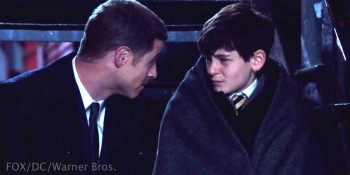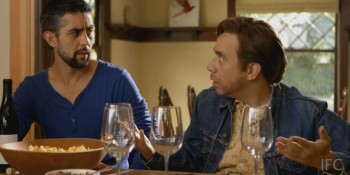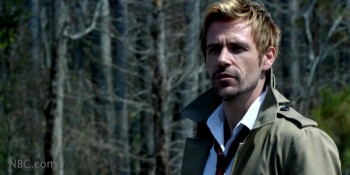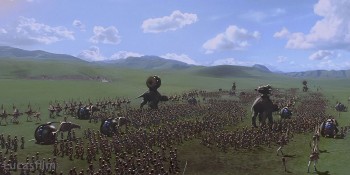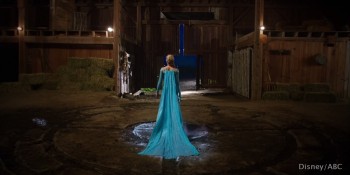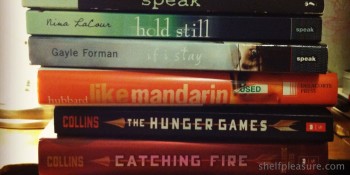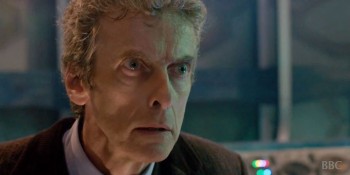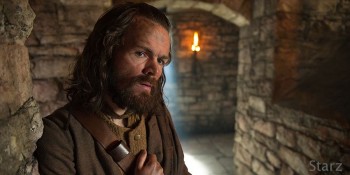Fox’s latest foray into comics adaptations, the new television series Gotham, premiered to strong ratings this week. The series follows future Police Commissioner James Gordon in his early years on the police force of Batman’s hometown, Gotham City. The early ratings show how strong the Batman franchise is, with the pilot drawing 8 million viewers. Critics seem to enjoy the show as well, believing it could be the strongest hit of the new season.
But Gotham will only live up to the expectations if its writers quickly figure out what they want the show to be. Should it be the story of Jim Gordon and his mission to clean up the city of Gotham and its corrupt police department? Or should the show be about fan service, winking and nodding at the audience while introducing an 8-year-old Clayface?
Gotham’s first episode tried hard to be both, spending most of its first half with pointless sightings of young Catwoman, Poison Ivy, The Riddler, and The Penguin, before settling into a very strong plot in the second half hour. After getting past those useless Easter eggs, Gotham became an intriguing show, with Gordon realizing the police aren’t necessarily the good guys and coming to terms with what needs to be done to survive. Gordon ends the episode with a new mission to extricate the scum from his new home, and the audience is drawn in to join him on his futile mission, despite us knowing that Gordon will ultimately be unsuccessful. (If Gordon did succeed, there would be no need for a now-8-year-old Bruce Wayne to ever don the cape and cowl.) But the struggle to change the corrupt system from within is intriguing in itself and offers a lot of opportunities for future story lines.
Focusing the story of the first episode on the murder of Thomas and Martha Wayne was another good choice, as it reminds the viewer of the future in store for Gotham while also allowing Gordon an opportunity to utilize his detective skills. Unlike the extraneous cameos of other Batman characters, Bruce’s early meetings with Gordon are internally consistent and in step with the larger scale mythology due to their personal relationship as well as the prominence of the Wayne family name in Gotham City.
Gotham City, just as much as any of the heroes or villains, has always been its own character within the DC Universe. Gotham is almost always seen in the dark, features gothic architecture, and seems to house the worst of the worst in criminals, politicians, and police officers. Bruce Wayne is a victim of the city, having been traumatized by his parents’ senseless murder at a very young age. As Batman, Bruce sets out every night to fight an endless war on crime, supposedly hoping that his actions will eventually make his city safer. But Gotham always fights back.
Organized crime in the city is controlled by demi-warlords, with battles over turf leading to the deaths of innocent victims all the time. When Batman is able to stop the traditional criminals, he is met by more ludicrous and theatrical challengers who often show signs of poor mental health, likely a direct result of living in a corrupt city with no viable social safety net and, consequently, a complete lack of hope.
The Gotham City that existed before Batman emerged has been explored in comics for years but never as extensively as Fox’s new show promises to do. The potential is intriguing right from the start, but it appears as though the writers are short on ideas, with the first episode showing a stark reliance on characters whose relevance is almost completely dependent on the existence of Batman. Catwoman is not interesting as an 8-year-old pickpocket; she’s interesting as the bad girl who boils Batman’s blood. She is interesting in Frank Miller’s interpretation in Batman: Year One because she is the first civilian to adopt Batman’s idea of theatricality. Poison Ivy is not an intriguing character because her father probably beat her; she is an intriguing character because of her power over plants and her use of toxins to incapacitate her foes. Both characters rely heavily on their sex appeal as weapons, often catching Bruce Wayne and other opponents off guard. These characters in their prepubescence are completely useless to a show that should be about police corruption and moral ambiguity.
Gordon, however, has always been one of the most impressive characters in DC Comics, and is certainly a deserving protagonist. Gordon, created by Bill Finger and Bob Kane, was introduced in Detective Comics #27 — the same first issue as Batman himself — and has been a comic book staple ever since. In a world of vigilantes and super-powered aliens, Gordon is a workaday every man, struggling to make the streets safer. Gordon has no superpowers and, unlike Batman, is not motivated by a personal vendetta or a traumatic experience. Gordon just does the right thing because it is the right thing. He is the incorruptible man in a city that thrives on corruption.
One definition of bravery is that it is not the absence of fear, but the presence of fear and the willingness to overcome it. By that standard, Gordon is a braver man than even Bruce Wayne. Batman does not fear his own death and would unflinchingly sacrifice his life for the betterment of mankind. Gordon, however, has constructed a life and a family and does not live with a death wish like his counterpart and friend. Gordon makes mistakes, like when he cheated on his first wife, and he has suffered great tragedy, including seeing his daughter shot and crippled by The Joker. But he fights on, maintaining his moral compass and owning up to his few errors in judgment. Gordon is so compelling as a hero, in fact, that IGN voted him No. 19 in its list of the Top 100 Comic Book Heroes, placing him higher than Green Arrow, Shazam, and most X-Men.
The writers of Gotham will do well to remember the strength of their lead character and build around him instead of focusing on the exciting, theatrical villains of Batman lore before they actually become exciting, theatrical villains. The police corruption plot, unveiled 28 minutes or so into the first episode, is enough to make the series great. We don’t need to see Selina Kyle pouring milk for cats in back alleys.
